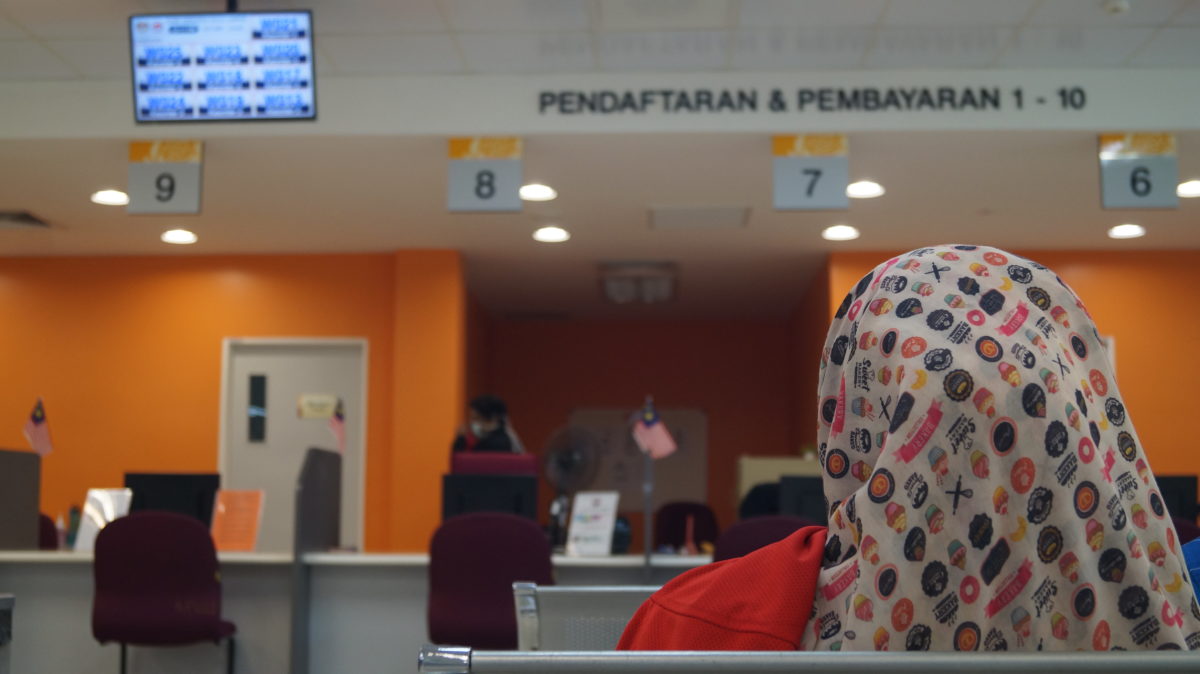As the battle against Covid-19 progresses, the government has now introduced another new initiative — the implementation of a shift system in selected klinik kesihatans nationwide, with the aim to eventually implement this nationwide.
Sounds perfect in theory. Shift system to limit the number of patients in clinics. But this shift system will only be implemented in health clinics (klinik kesihatans), not the specialist clinics in hospitals.
Most health clinics would ideally need two to three times the current number of staff for a proper shift system in order to provide adequate care and service to patients.
A pilot project previously conducted in Klinik Kesihatan (KK) Putrajaya prior to Covid times failed miserably within three months of implementation due multiple factors, one major problem being burnout among staff due to lack of staff and resources.
The current extended hours offered at most major health clinics on top of the many strategies implemented are more than adequate.
- Social distancing measures implemented: Marked chairs and floors, posters and signs for social distancing, constant surveillance by staff and security guards to ensure social distancing.
- Triage counter.
- Separate fever and URTI (upper respiratory tract infection) clinic.
- Staggered appointments for all chronic cases, blood-taking, antenatal visits, vaccination schedules.
- Walk-ins are limited and given re-appointment to control the crowds.
- Drive-thru collection of medication.
The current patient load with good implementation of these measures does not lead to overcrowding or breach social distancing measures.
Night-time appointments are only feasible in urban areas and large cities with good public transportation.
Rural areas, smaller districts, and states like Sabah and Sarawak with inadequate infrastructure and limited public transportation are poor candidates for the shift system.
Many patients still rely on public transportation and would be left stranded if given evening/ night-time appointments.
Many policymakers and top level officers are ill-informed and unaware of the function and scope of health clinics. Most believe that health clinics just see normal appointments for chronic diseases.
That barely scratches the surface of what our true scope covers. A good primary care doctor is supposed to diagnose all sorts of diseases encompassing the entire range of specialties, from medical, surgical, ophthalmology, ENT (ear, nose and throat), psychiatry, obstetrics, paediatrics — literally everything under the sun. Then they decide to either treat at primary care level or refer as appropriately to respective specialties.
Health clinics provide services for:
- Chronic disease follow-up (eg: diabetes, dyslipidemia, hypertension, asthma, chronic obstructive airway disease, thyroid disease, epilepsy, eczema, etc).
- Medical check-ups (pre-university, pre-employment, JPJ licence renewal, firearm renewal, OKU application, social welfare referral, etc).
- Pre-marital screening.
- Screening: TB, influenza, colorectal cancer, breast cancer, pap smear, DASS (depression anxiety stress scales).
- Tuberculosis and leprosy clinic.
- Klinik Berhenti Merokok (Quit Smoking Clinic).
- Domiciliary (home care visit) service.
- Mobile clinics (klinik bergerak) — travelling team with medical officer to rural areas, islands, etc to provide on-site care to hard-to-reach areas.
- School health service (Perkhidmatan Kesihatan Sekolah) teams to visit taskas, tadikas, primary and secondary schools. They provide thalassemia screening, vaccination, and routine check-ups to children at schools.
- Methadone clinic (certain states).
- Neonatal jaundice clinic (certain states).
- Antenatal care clinic and home visits.
- Talks and cooking demos for expecting mothers.
- Access to lactation consultants — nurses and certified volunteers to help train new mothers on breastfeeding.
- Postpartum clinic and home visits.
- Neonatal jaundice follow-up.
- Childcare visits — immunisation, monitor growth, M-chart.
- Immunisation programmes — supplementary immunisation activity, catch-up immunisation to foreigners/ defaulted appointments.
(Sabah currently has an ongoing polio vaccination programme due to recently diagnosed vaccine-derived polio infections in Sabah. Children under 13 are to receive four doses of oral polio vaccine. The programme was temporarily halted due to Covid-19 and has now resumed).
- Walk-ins.
- Specialist clinics in hospitals do not receive walk-in cases and require all patients to be seen at a Klinik Kesihatan before getting a referral to their clinics.
- Identify which cases can be managed at primary care level and which to be referred to tertiary centres.
Stable requiring referral (outpatient specialist clinic appointment)
- Medical — parkinsonism, atrial fibrillation, chronic kidney disease, congestive heart failure, rheumatoid arthritis etc.
- Ophthal — cataracts, diabetic retinopathy.
- ENT — otomycosis, tympanosclerosis, laryngomalacia, lymphadenopathy
- Surgical- reducible hernia, renal stone, bladder stone, benign prostate hypertrophy, lipoma, suspicious mass, breast lumps, multinodular goitre, possible malignancy etc.
- Paeds — Autism spectrum disorder, ADHD, syndromic child.
Requiring admission/ immediate referral
- Medical — dengue with warning signs/ compensated/ decompensated shock, malaria, acute coronary syndrome, NSTEMI (non-ST-elevation myocardial infarction), STEMI (ST-elevation myocardial infarction), stroke, pneumothorax, pleural effusion, symptomatic anaemia/ hypokalemia/ hyponatremia/ hyperkalemia.
- Ophthal — sudden loss of vision.
- Ortho — trauma, fractures, necrotising fascitis, tendon cuts.
- Surgical — appendicitis, acute cholangitis, strangulated hernia, intestinal obstruction, frank hematuria.
- Psychiatry — suicidal tendencies.
- Obstetrics — pre-eclampsia, impending eclampsia, eclampsia, post partum haemorrhage, obstructed labour, preterm labour.
- Paeds — bronchopneumonia, new onset febrile fits, acute glomerulonephritis, post-strep AGN, neonatal jaundice.
Extra programmes over weekends/ holidays
- Supplementary immunisation activities (SIA) in the villages/ housing areas.
- Community outreach programmes.
- Awareness campaigns.
- Health care screening programmes at shopping malls or public areas.
- Events/ runs to promote awareness.
- Medical camps at rural areas.
- Wellness clinic.
All these activities were ongoing even before Covid-19.
Now, thanks to Covid-19, primary care doctors and staff (nurses, medical assistants, etc) are also required to work at the frontlines to provide screening to the public and deal with the quarantined.
Most of the health care workers seen on social media screening people in open areas or designated screening areas are health clinic (klinik kesihatan) staff.
They suffer gruelling hours in PPE dealing with the sometimes ungrateful public in Malaysia’s hot weather. Despite their sacrifice, PPE is scarce and many had to rely on donations in order to be adequately protected. (This issue has mainly been resolved but is still ongoing in certain areas, still relying heavily on donations).
On top of that, the sweet promises for the extra RM600 monthly incentive turned into empty promises, with some in direct exposure to Covid-19 positive patients having their claims denied. The issue with claims in hospitals and klinik kesihatans remains ongoing nationwide.
This entire tirade is to explain that primary care doctors and health clinic staff do a lot more than what the higher-ups and even hospital staff perceive we do.
By forcing a shift system on top of all these activities and programmes during Covid-19 times in a situation with a lack of staff will only be detrimental to the welfare of everyone, patients included.
Clinics forced to implement the shift system are already noticing a trend of burnout among staff with some doing double shifts from 8am-9.30pm without any compensation or recognition for the extra hours done. (NO locum claims, NO cuti ganti, not even claims for the extra hours!)
If money is not an issue and the government is able to pay the staff for the extra hours required, I strongly suggest that the extended hours be continued until a time when more posts are created for all levels of staff, from doctors to nurses to medical assistants to radiographers to physiotherapists and many more support staff crucial to the functioning of a klinik kesihatan.
Implementation of the shift system should only come when there is enough manpower to provide adequate care. Not as a trial and error basis when it affects the livelihood and welfare of all health care workers, especially during Covid-19 times when resources are further stretched to cope with the ever-present threat.
One cannot expect optimum care and management of patients if the people providing the said care are not taken care of.
Threats to staff to leave the government if unhappy will only cause further demoralisation and burnout which would negatively impact all involved, especially patients.
The recent announcement by the health minister that Malaysia has reached the World Health Organization’s (WHO) goal of doctor: patient ratio sounds very far-fetched to many of us working at ground level, especially Sabah and Sarawak. When even basic infrastructure and development is grossly neglected, one can hardly expect that health facilities or staff would be adequate.
The writer is a senior medical officer at a Klinik Kesihatan in Sabah.
Note: CodeBlue is publishing this letter anonymously on the writer’s request because civil servants are not allowed to speak to the press without approval from their superiors.
- This is the personal opinion of the writer or publication and does not necessarily represent the views of CodeBlue.





